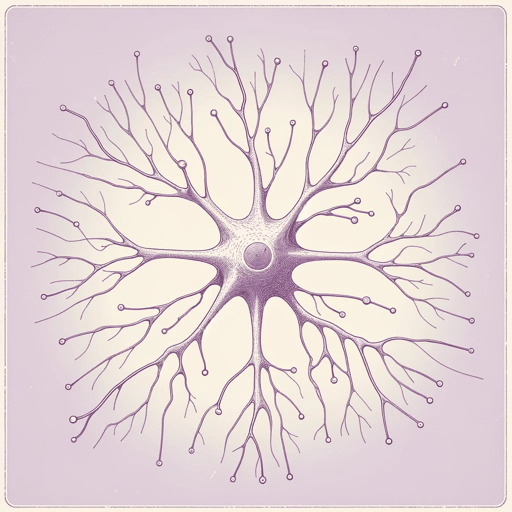49 pages • 1 hour read
Daniel CoyleThe Talent Code: Unlocking the Secret of Skill in Sports, Art, Music, Math, and Just About Everything Else
Nonfiction | Book | Adult | Published in 2018A modern alternative to SparkNotes and CliffsNotes, SuperSummary offers high-quality Study Guides with detailed chapter summaries and analysis of major themes, characters, and more.
Summary and Study Guide
Overview
The Talent Code: Unlocking the Secret of Skill in Sports, Art, Music, Math, and Just About Everything Else by Daniel Coyle explores the concept of talent and its development. Coyle, a journalist and author, uses his extensive research and interviews within talent hotbeds around the world to uncover the secrets behind skill development.
A book that fits within the genres of both popular science and self-improvement, The Talent Code provides readers with insights into how to unlock their potential and cultivate talent. The text emphasizes that Deep Practice Cultivates Talent, which occurs through intense focus, deliberate repetition, and constant feedback. Coyle explores the theme of Nature and Nurture Versus Deep Practice, arguing that deep practice is much more important than genes or circumstance (nature or nurture) when developing talent. His theories are undergirded by The Importance of Myelin in Skill Development; he cites studies contemporary to the book’s publication in 2009 that show that the growth of myelin, a substance that insulates and enhances neural connections, is key to improving skill acquisition and performance.
This guide references the 2009 Bantam Books edition of the book.
Summary
The book is divided into three parts, each focused on a different element of Coyle’s skill development theory: the concept of deep practice, the factors that motivate one to pursue excellence in a domain, and the role of coaching in skill development.
In the Introduction, Coyle provides an overview of “talent hotbeds,” which are geographic areas that consistently produce a high number of talented individuals in a particular field. He also introduces two key concepts that he explores later in the text. First, he introduces myelin, a biological substance that contributes to skill development by insulating and enhancing neural connections. He then describes a form of practice that is characterized by intense concentration and an emphasis on error correction. He later defines this as “deep practice,” a mode of repetition that fuels skill development. He uses the case study of a clarinet player named Clarissa to demonstrate this style of practice.
In Chapter 1, Coyle delves further into the concept of deep practice using the example of the flight simulator, first invented by Edwin Link, to illustrate his points. He shows that flight simulators provide pilots with safe environments in which they can engage in deep practice and improve their skills without the risk of real-life consequences. Coyle also explores the success of Brazil’s soccer teams, deeming Brazil a talent hotbed. He argues that Brazil produces exceptional players because it has created an environment that fosters deep practice: Brazil’s emphasis on futsal, a small-sided version of soccer played on hard surfaces, allows players to maximize their touches on the ball and develop skills at a faster rate.
In Chapter 2, Coyle describes another fundamental concept, myelination, which refers to the process by which the brain develops and strengthens neural connections. By wrapping neurons with increasing layers of myelin, a fatty substance, the efficiency and speed of neural communication are significantly enhanced. Coyle argues that myelination is the foundation of all skill development, since skill consists of a network of neural connections; the more insulated the network, the faster the neurons can fire, and the more fluidly and skillfully the individual can perform the task.
In Chapter 3, Coyle employs three case studies to support his argument that genius is born of deep practice rather than innate talent. He describes the trajectories of three groups of people: the Brontë sisters of the literary world, the Z-Boys (a group of skateboarders), and the Renaissance artists of Florence.
In Chapter 4, Coyle describes the psychological phenomenon of “chunking,” which refers to the process of organizing information or skills into meaningful units, or “chunks.” He contends that skills are made of nested chunks that essentially correspond to circuits in the brain; breaking down skills into their component chunks and practicing them deliberately therefore allows for more effective practice.
In Chapter 5, Coyle explains the concept of “ignition,” which refers to the moment of inspiration or motivation that sparks a person’s desire to pursue and develop a skill. He provides case studies in Chapters 6 and 7 that illustrate his point, with examples from different fields such as education and sports.
In Chapters 8-10, Coyle explores what makes a “master teacher,” someone who is able to guide and inspire individuals on their journey toward mastery. He highlights effective teachers and coaches such as the teachers at KIPP Charter School, basketball Coach John Wooden, and football coach Tom Martinez. He describes the main qualities of these master teachers, including their ability to provide clear and specific feedback, create a supportive and challenging learning environment, and adapt their teaching style according to the needs of their students.
In the Epilogue, Coyle applies the main principles of the book to different contexts, such as education and business. He discusses the debate in education between the whole language and phonics approaches to literacy, concluding that a combination of both approaches would effectively provide students with both the ignition and deep practice needed to develop their reading skills.
Overall, The Talent Code provides a comprehensive analysis of talent development and mastery. Coyle heavily bases his work on research, interviews, and case studies, using a combination of quantitative and qualitative evidence to support his arguments. The book explores the concepts of deliberate practice, ignition, and master teaching, emphasizing the importance of breaking down skills into meaningful chunks and providing a supportive and challenging learning environment. Coyle seeks to provide readers with actionable insights supported by evidence to help them understand how they can facilitate the development of talent in their own domains.


